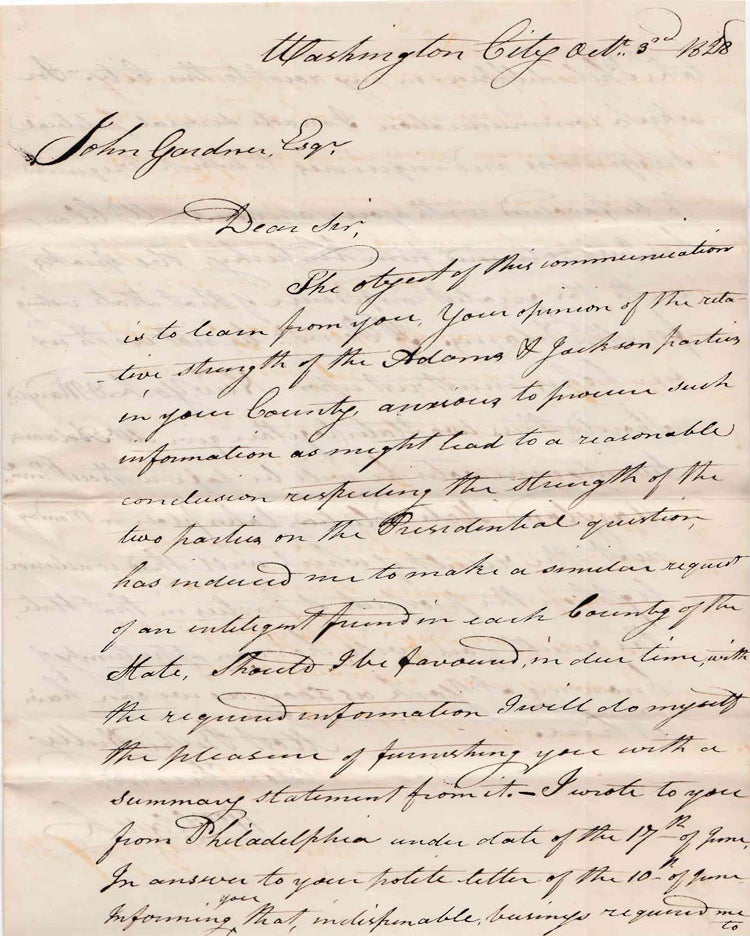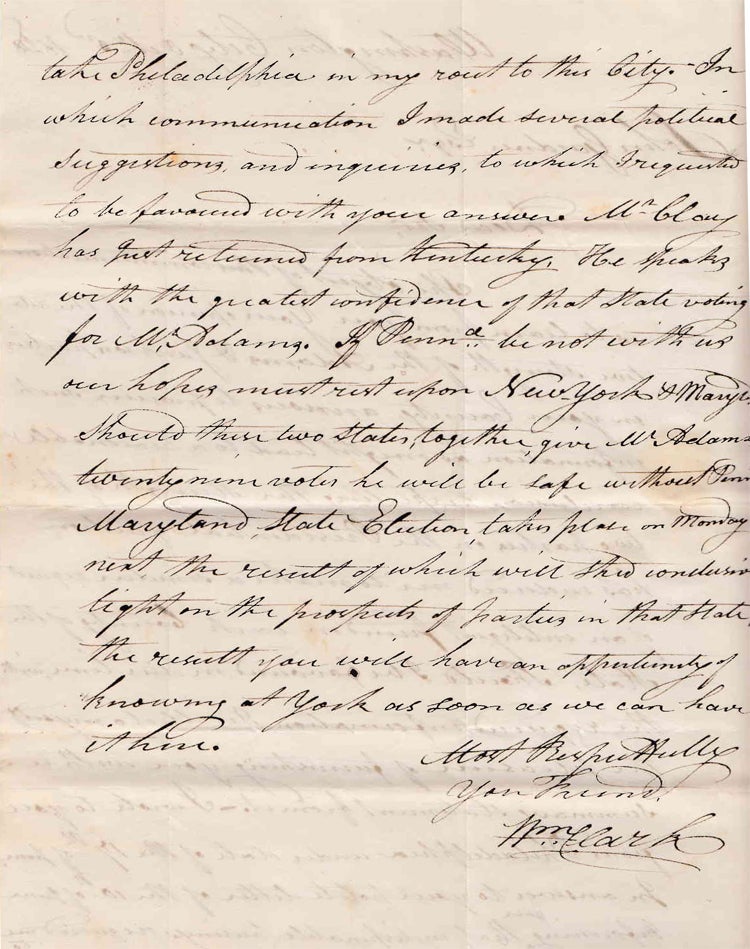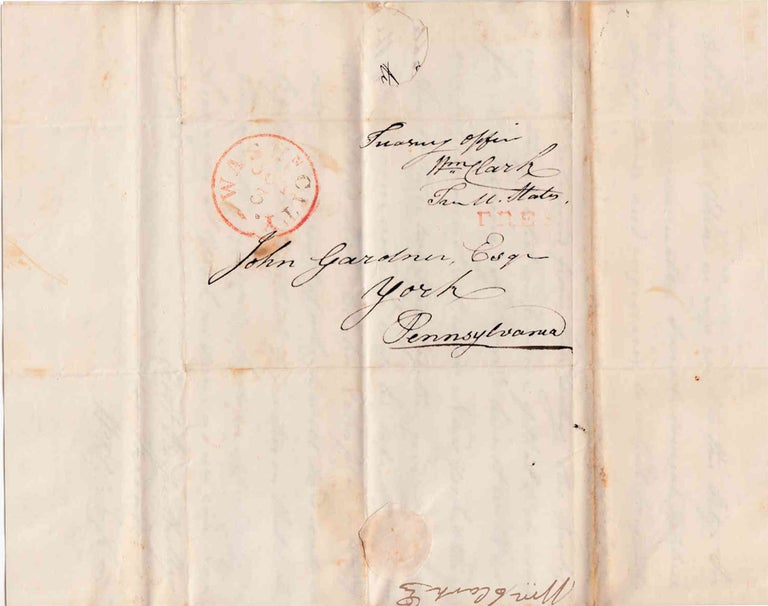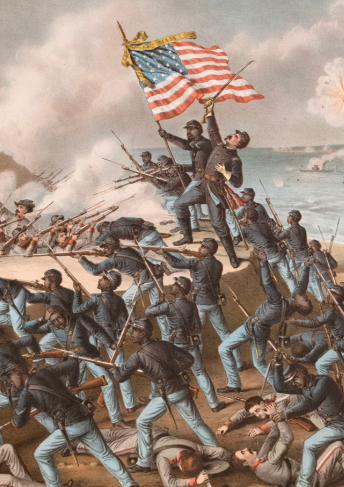Adams vs. Jackson campaign of 1828 state synopsis
Autograph Letter, Signed "Wm Clark" To John Gardner of York, Pa inquiring as to Gardiner's "opinion of the relative strength of the Adams & Jackson parties in your County..."
Washington City: October 3rd 1828.
Price: $275.00
About the item
2 pages. Bifolium with address, docketed. 4to. Adams vs. Jackson campaign of 1828 state synopsis. Old folds, with small hole not affecting text, some foxing.
Item #302397
An engaging insight into state level political machinations during one of the epic presdiential campaigns that saw the emergence of the Second Party System in the U.S.
The Presidential campaign of 1828 was a rematch between incumbent President John Quincy Adams and Andrew Jackson, who suffered a bitter defeat in the election of 1824, which was decided by the House of Representatives under the provisions of the 12th Amendment when none of the four candidates running received a majority of electoral votes. Speaker of the House, Henry Clay of Kentucky, an outspoken opponent of Jackson, was instrumental in securing Adams' victory. In return, Adams named Clay Secretary of State; a deal immediately denounced by Jackson supporters as "the Corrupt Bargain." The campaign of 1828 was known as one of the dirtiest in U.S. history. Jackson believed that the vicious attacks aimed at his wife Rachel and the circumstances of their marriage, specifically those leveled by Henry Clay, led to her untimely death later that year.
In his letter to Gardner, Clark informs him that "Mr. Clay has just returned from Kentucky. He speaks with the greatest confidence of that state voting for Mr. Adams. If Penn[sylvania] be not with us our hopes must rest upon New York and Marys. [Maryland]. Should these two states, together, give Mr. Adams twenty nine votes he will be safe without Penn."
Despite Clay's "greatest confidence," Jackson won Kentucky. He also won Pennsylvania and New York in a landslide victory that ushered in Jacksonian democracy and what has become known as "The Age of Jackson."
William Clark (1774-1851) was a farmer, jurist, and politician from Dauphin, Pa. He was Treasurer of the United States from June 4, 1828, to November 1829, and was a member of the U.S. House of Representatives from 1833-1837.




